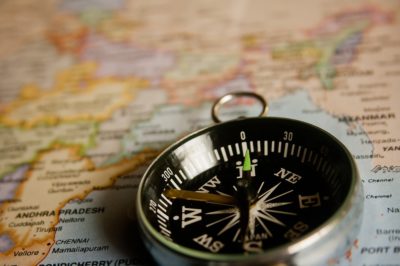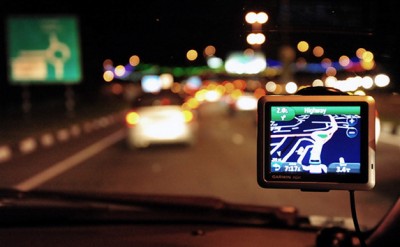GPS is simultaneously one of the most important and prevalent technologies of our age. Whether you use a dedicated GPS device, own a smartwatch, have a smartphone in your pocket, or use a computer built in the last couple years, there’s a good chance that GPS is a heavy part of your day-to-day life, whether you realize it or not. And, as with any technology, as the uses grow and the privacy concerns blossom, it leaves people wondering if GPS doesn’t have any unintended consequences.
Overall, GPS is a wonderful thing. I don’t think anyone would argue that the ability to not get lost when driving to your Aunt’s house once a year isn’t useful, or that being able to avoid traffic on your way to that awesome sushi place isn’t nice. But, with the constant outsourcing of mapping and navigational tasks, is it possible that GPS is also affecting your brain?
A couple of years ago, I wrote on this very topic after an NPR article outlined the fact that when GPS is on, your brain’s natural mapmaking is turned off. It is a little scary, but a recent study has not only confirmed this but also suggested that the lack of mental mapping actually changes not only the way your brain works, but the actual matter in your brain.
 Now, I know that sounds awfully scary, but it’s important to note that your brain is extremely adaptable and some changes as you grow are natural. In fact, the study references how the gray matter in the hippocampus of London cabbies is actually slightly larger than your average person. Their mental maps of London, called “the Knowledge” actually changes their brains. So before we continue, do keep that in mind.
Now, I know that sounds awfully scary, but it’s important to note that your brain is extremely adaptable and some changes as you grow are natural. In fact, the study references how the gray matter in the hippocampus of London cabbies is actually slightly larger than your average person. Their mental maps of London, called “the Knowledge” actually changes their brains. So before we continue, do keep that in mind.
Anyway, in the Mother Jones article, it discusses how creating a mental map of a place is integral to being able to find your way around without a GPS. Those mental maps are what allow you to realize where you are in a place, find new routes, and navigate. All of those functions happen in a part of the brain known as the hippocampus. However, recent studies suggest (not conclusively, mind) that overreliance on GPS may actually make the hippocampus, as those functions are not being used when GPS is giving directions.
This might sound ridiculous until you consider all of the stories of people blindly following GPS directions to their own detriment or deaths. I’ve read countless stories of people driving off cliffs, driving into the ocean, hitting bridges, or getting stuck somewhere because they ignored ‘road closed’ signs or other warnings that things aren’t quite as they should be.
In short, the article, which you can read here, is really worth a look. The author suggests that wayfinding is becoming an archaic skill, but that even doing something as simple as placing the GPS to orient North instead of behind you might be a great way to make sure that your brain isn’t totally checked out of the scenario. Perhaps we should all start focusing on building some cognitive maps before the convenience of the digital age makes us unable to do so.
But, what do you think? Does overreliance on GPS effect you? Do you find that after arriving somewhere via GPS you don’t know how to get back without GPS? Tell me in the comments below!

